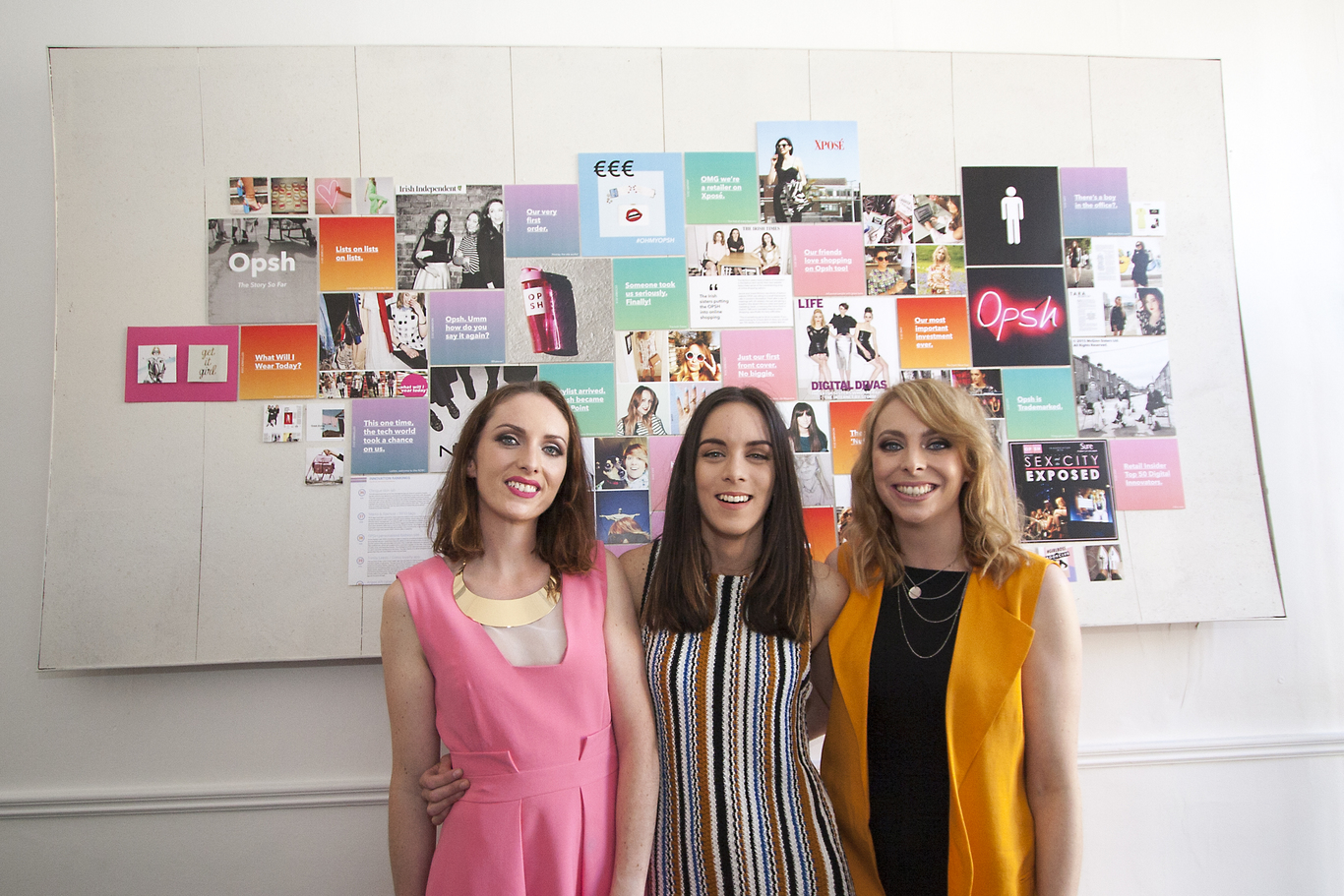'None of us had a clue so we Googled how to get money to set up a business'
After building up a following on her fashion blog, an internet search helped kickstart this entrepreneur’s career.
BEFORE I GOT into business with my two sisters, Grace and Sarah, the three of us had very different career paths.
I did communications in college, which is a great course, but doesn’t qualify you to do anything, and then I went off to study lifestyle and fashion journalism in the London because I didn’t know what I wanted to do after college, but I knew I liked fashion.
The course was great, but I was left a little bit scarred by the whole fashion industry in the UK. Six months and two internships later, I was completely burnt out – I saw how cut throat and bitchy it all could be.
My experiences as a 21-year-old nearly put me off the whole fashion industry. I don’t want to taint the whole sector because I don’t think everyone is bitchy, it’s just a very tough area to break into.
There is a pressure to always dress well and look the part, which can cost a lot of money and limit a lot of people’s ability to go far in that world.
So I ended up focusing on the lifestyle aspect of the course before doing another masters in cultural policy and arts management, which was another great course that didn’t really qualify me for anything.
However, off the back of that I ended up working for the Screen Directors Guild of Ireland and Circa Art magazine, before eventually getting into business with my sisters.
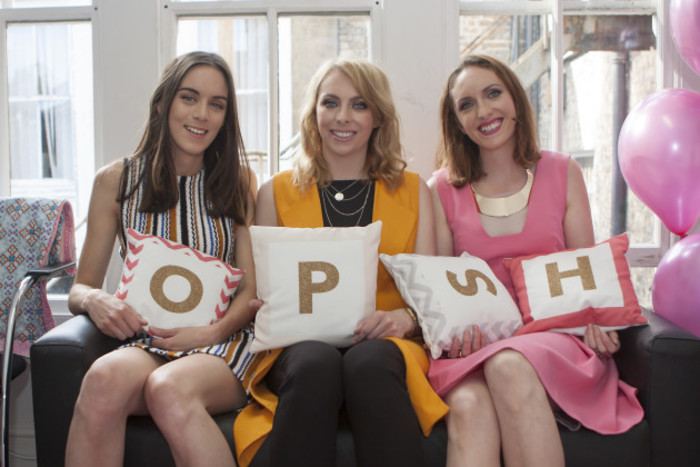 Grace, Sarah and Jennie McGinn
Grace, Sarah and Jennie McGinn
Sister act
We are a very tight family. There are six sisters in total and over the years we would all go on the same holidays together and socialise together.
But there was a period where I was in Dublin, Sarah was in Wolverhampton and Grace was in Cork and we went on one family trip to New York. It was actually that holiday where the idea for us all to work together came about.
We were there when New York Fashion Week was on and didn’t even realise, but we bumped into Kelly Cutrone, a celebrity stylist from The Hills reality TV show, and after a chat she insisted we got into one of her shows.
We got to see the industry up close and it was an inspiring experience, then after the show we talked to Kelly and she suggested we should do something in fashion.
This was at a time when blogging was just starting to really take off and we thought since we all have an appreciation for fashion, maybe we could start a blog, called What Will I Wear Today, as a hobby.
We all got really into it and started going to press days as well as doing our own shoots. It was surprising, but slowly over time the audience kept growing and we felt the need to be more professional.
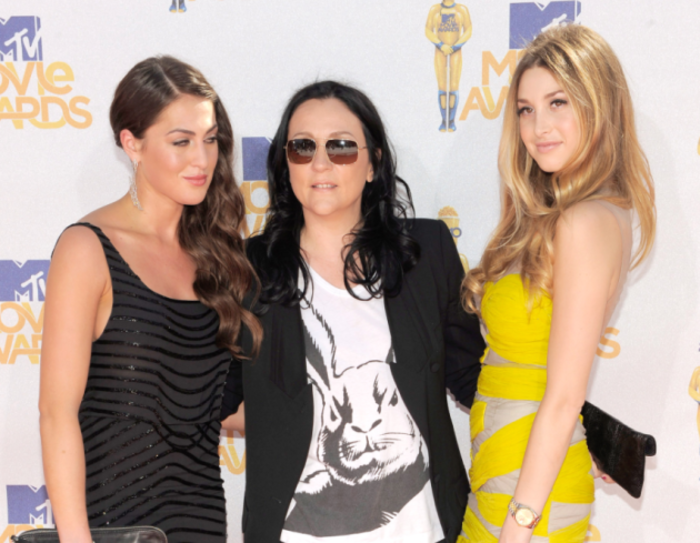 Kelly Cutrone (centre) at the MTV Movie Awards
Kelly Cutrone (centre) at the MTV Movie Awards
Launchpad
After four years, it reached a point where we were winning awards and our profile grew quite large, but we weren’t getting paid for it, so we had to think about how to turn it into a business.
None of us had a clue what we were going to do, so we simply did a Google search for “How do you get money to set up a business” and stumbled across the NDRC Launchpad programme.
We had ideas going into that programme, like building a Facebook for fashion, but Launchpad helped us to refine that idea and build a minimum viable product. We felt so out of our depth for a lot of it and it was only towards the last pitch that we came up with Prowlster, our first business.
It was a mix of content and commerce. You could read about a product on our site and without leaving you could buy it.
It helped us build a cult following, but towards the end of the first year of running it we noticed that independent boutiques and designers are really enthusiastic, but they are not strong on fulfillment. We knew we wanted to work in the retail space, but never get involved in the logistics of it all, we just wanted to be a reseller.
So after a few months of soul searching, we recognised that there was a bigger chance to explore – disrupting the mid-tier high street brands by bringing those products to an online marketplace. Unfortunately, Prowlster wasn’t the vehicle to do that.
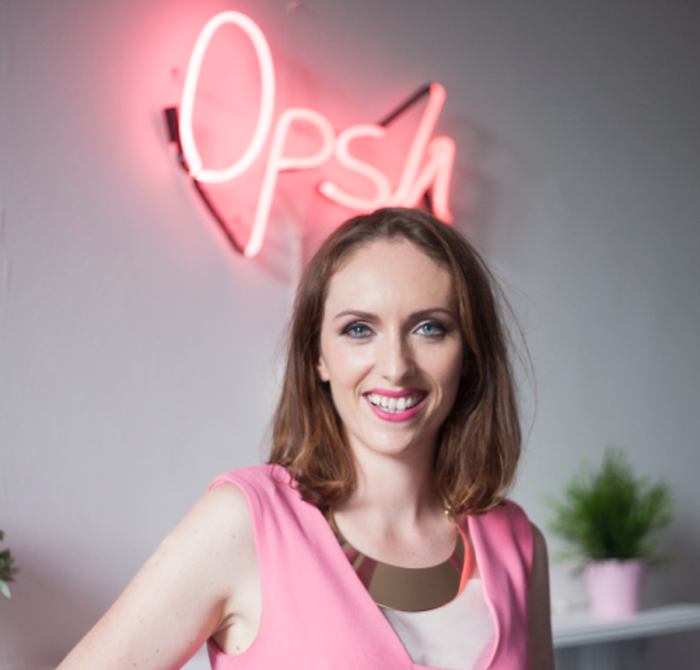
Leaving Prowlster
It was very tough to leave Prowlster behind because we had invested a lot of time, energy and money into that company, but the audience we had built up wasn’t suitable for the next platform and thankfully we were able to sell on the company.
When we were coming to terms with it all, a lot of the lessons we learned in NDRC started to hit home. They tried to instill into us the difference between a lifestyle business and a rapidly growing scalable tech startup.
At the end we could see that Prowlster was a lifestyle business and in the startup space, you are trying to build something rapidly to either sell or raise enough money to drive it.
Next project
So we had to start from scratch again in 2013. We couldn’t even pull over the social media channels from Prowlster.
Before it came to be known as Opsh, our next business started out as Shop Clicks. What we were trying to do was create a personalised shop browsing experience, like Netflix, but specifically for high street, with purchasing functionality. To put it simply, we’re bringing high-street fashion to an online marketplace.
It took six to nine months to go through the process of building tech specs, devising the whole concept and doing all the technical research.
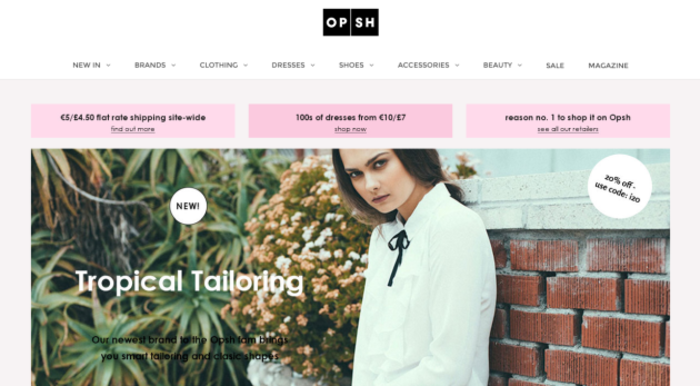
It was a big challenges to get multinational retailers to pay attention to what three women from Ireland had to say about the state of the online high street industry.
We also had to get our heads around data and product feeds, how to actually take a dataset from another e-commerce platform and repopulate it into ours and trying to conceive how this would come together without us being involved at the product level.
After we laboured through those problems, we hit a tipping point when we eventually got in touch with the investment advisor for Brett Palos, one of Sir Philip Green’s stepsons and a big name in the fashion space, and just on the results we had from running the beta version of Opsh, he decided to invest.
That was a big moment for us. Not only was someone willing to invest, it was someone coming from the fashion industry. But with that came a lot of responsibilities like people management, customers and, of course, accountability for someone else’s money.
That helped us move out of the scrappy phase of running a startup. We weren’t thinking “should we give this up and go back to our day jobs” anymore and it repositioned how we felt about the business.
So, 2015 was very intense, but it was a real tipping point for the company. We now have over 20 multinational retailers on board and sales have been growing 30% month on month.
Next, we have our eyes set on capturing half of our target market in the UK and then, hopefully a leap to the US won’t be too far off the cards.
Jennie McGinn is the co-founder and CEO of Opsh. This article was written in conversation with Killian Woods as part of a series on unlikely entrepreneurs.
If you want to share your opinion, advice or story, email opinion@fora.ie.
